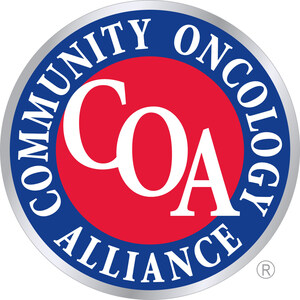Study: Poor and Inconsistent Reimbursement of Oral Cancer Drugs Impairs Treatment
Study Sponsored by Community Oncology Alliance Identifies Barriers to Use of Oral Cancer Drugs, Proposes Solutions
WASHINGTON, Feb. 18 /PRNewswire-USNewswire/ -- A comprehensive study of oral oncolytic (anti-cancer) drug treatments revealed that while their use is increasingly common, cancer patients frequently face barriers to accessing oral drugs compared to those delivered intravenously in oncology practice settings.
Additionally, while oral anti-cancer drugs have advantages such as patient convenience, they require many crucial procedures by cancer treatment professionals -- including management of side effects and monitoring for patient compliance – but these key services are not reimbursed by Medicare or other payers. Because of cost, oral cancer drugs are frequently placed in the highest price tier, where the patient's out of pocket cost can be as much as 25-50% of the total cost.
"The new 'smart' oral cancer drugs, which are much more targeted and precise, are generally covered under patients' prescription drug plans, rather than under their medical plans," explained Patrick Cobb, M.D., president of COA and managing partner of Hematology-Oncology Centers of the Northern Rockies in Billings, Montana. "Patients are then left to foot a large portion of the bill - typically 25-50% of the cost. This can add up to thousands of dollars a year -- and sometimes thousands of dollars per month."
The study sponsored by Community Oncology Alliance was conducted by strategic healthcare advisory firm Avalere Health, which reviewed 2009 Medicare and private insurance payer formularies and coverage of 11 common oral oncolytics, looking at formulary placement, utilization management and patient cost sharing. Avalere also interviewed 54 oncology care-involved professionals to identify the most common barriers to oral oncolytics and potential solutions for addressing those barriers.
"Although the availability of oral drugs has allowed many patients with advanced malignancies to live longer and better, the great expense of these new agents, along with an antiquated reimbursement system, threatens to undermine the already-financially-challenged community practice model," commented Dr. Cobb. "Ensuring that parity exists between reimbursement for oral and IV cancer treatments will both increase access to life-saving treatments and improve the quality of life for cancer patients."
"As new oncology products emerge, payment systems and physician practices must innovate to ensure patients have access to the most clinically appropriate drug for each patient," said Lauren Barnes, a vice president at Avalere Health and co-author of the report. "Cost-sharing inequity between pharmacy and medical benefits is a palpable challenge created by the current coverage of oncolytics. This will become an increasingly important issue to evaluate and potentially reform as more oral oncolytics enter the marketplace."
The Avalere study identified Best Practices that oncology offices and payers can implement immediately to help ensure patient access to oral oncolytics, as well as longer term strategies to effect change within current reimbursement policies by both Federal and private payers. COA is actively pursuing solutions on both state and federal levels via the legislative process.
About Community Oncology Alliance (COA)
COA is a non-profit organization dedicated solely to community oncology. COA was founded by community oncology to advocate for patients and providers in the community oncology setting, where 84 percent of Americans with cancer are treated. In only six years of existence, COA has mobilized community oncology to become more politically active, and increased awareness on Capitol Hill about the community cancer care delivery system. Additionally, COA has brought together community oncology practices from across the country to share information in order to enhance the effectiveness and efficiency of the cancer care they provide to their patients.
Currently, COA is working with the Congress in providing proactive solutions designed to protect the viability of the nation's cancer care delivery system and patients' access to quality, affordable cancer care. The cancer death rate in the U.S. has declined due to earlier detection, the quality of treatment, and the accessibility of cancer care. However, according to the American Cancer Society, men still have an approximately one in two lifetime risk of developing cancer, with a risk of one in three for women. For more information, please visit www.communityoncology.org.
Contacts: |
|
Julie Chase |
|
(202) 955-4500 or (202) 997-8677 |
|
Angelyn Lowe |
|
(858) 273-1805 |
|
Chase Communications |
|
SOURCE Community Oncology Alliance
WANT YOUR COMPANY'S NEWS FEATURED ON PRNEWSWIRE.COM?
Newsrooms &
Influencers
Digital Media
Outlets
Journalists
Opted In





Share this article